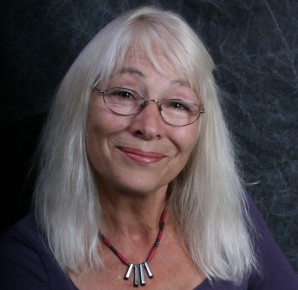HAVING WRITTEN THE CHILD CEPHALINA
The Child Cephalina was published on the 28th November 2019 with Tartarus Press in a handsome hardback format. When I was writing the book in 2017, I’d undertaken also to write a journal entry every day about what that day’s writing experience was like, to use as a way of learning how to approach my next novel, and to signal up in social media, the fact that the book was in the making for readers who did know my work and those who didn’t. Someone suggested I make a ‘how to write’ book from my journal entries, but if I was going to write a functional book like that, I’d approach it differently, because although the entries have some of my ways of going about novel writing, it doesn’t have all the things I’ve come to know as a writer. One aspect of the process I’ve been talking about lately, is editing and how that awful cliche ‘edit your work until it shines’ still rings out as advice to new writers. A film editor friend of mine gave me a great analogy for the situation in which a writer is slaving away trying to ‘edit ’till it shines’ a piece of work that’s not yet ready for editing in the first place… in the hope that it’ll force the piece to be ready. She said it’s like trying to ice a cake before it’s baked.
It’s not that I don’t think editing is an important part of writing, but it has its own specific position in the process, and that position is NOT after every sentence of the first draft, or every paragraph, every page, every chapter of that draft, it’s something that’s best done not before the second and subsequent drafts of a novel. There’s enough work to do in the first draft; there’s the business of making sure the story is good enough in the first place for both the writer and the reader to invest their time in. And, there’s the developing of the characters, the atmosphere, and the tone and so on. Put simply, I think if you get deeply involved in the editing process too soon in a novel, you tie yourself in to words, sentences, paragraphs and ideas that you might be loath to chuck away because you invested so much time and effort into the editing of them… so that they SHONE, and now you can’t possibly let them go. Psychologically that’s a very bad position for a writer to be in because the editing obsession is taking all your energy, is removing what might be inspired moments that you only recognise in a later reading and it’s sapping up all your brain energy so you’re not fresh to carry on with the next chapter. So beware the literary agent (who has never written a book in his life), when he says ‘you must edit your work until it shines’… in reality, you must have something worth editing in the first place, and that could be your reply to whoever dares offer you the cliche.

Horrible Flash Pieces
The Kiss
He clamped his narrow rat-like jaw together twice that afternoon, as the thought drifted into his mind that she wasn’t going to let him ram a section of his body into hers and bang it up and down after all. But he managed one kiss on the train home. His open mouth came towards her, lips wet, a groper fish on the prowl, and the scent of his caries ballooned into the air around them, he oblivious to it as he reached his target, her nauseated as she drew away too late. His lips were surrounded by rough spikey hair that jabbed at her upper lip, as his, mobile and outreaching, floundered between sucking and slobbering and managed both at the same time. The pair did not meet again.
Other Writing Thoughts
A Way of Organising & Writing Your Novel
“In the first instance, you need to be passionate about the story you want to tell because if you aren’t, you might well find that you grow tired of it in the middle and abandon it.
Short Stories | Snippets of Work in Progress
“Very clean teeth – I’ll give her that, but they were rather on the large and horsey side and it really wasn’t long before I became fixated by them in a manner of speaking, in that I both wanted to see them again and at the same time dreaded the thought of it.



